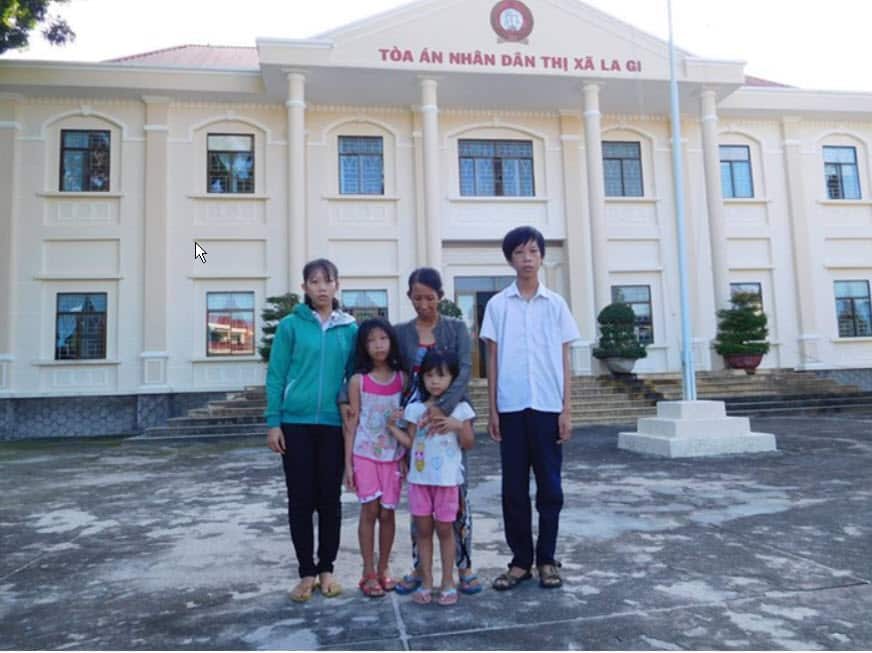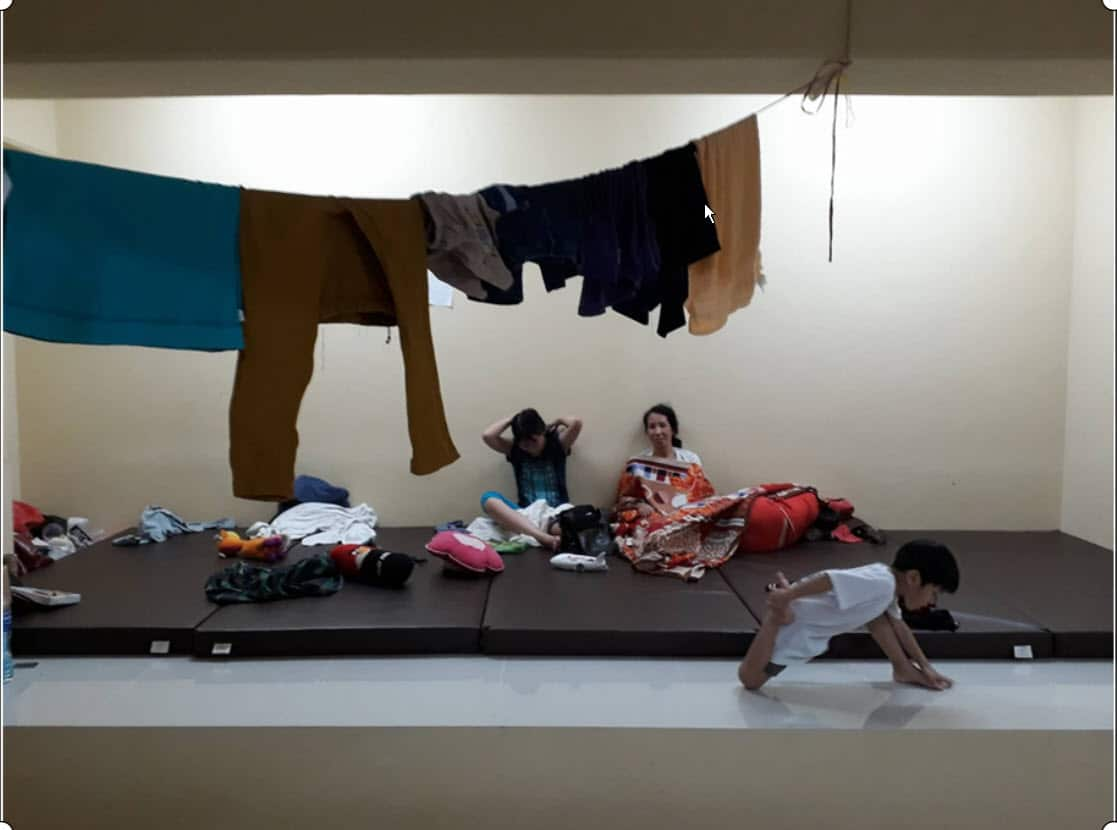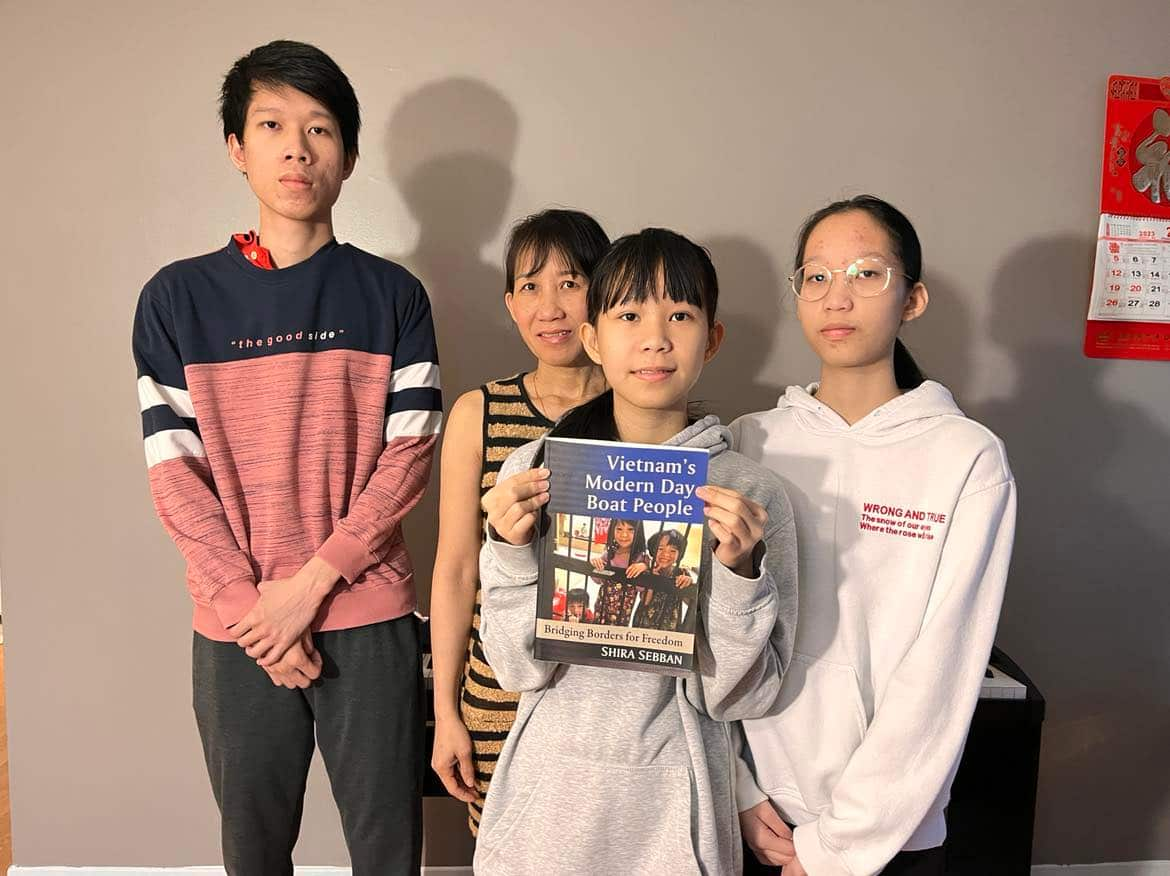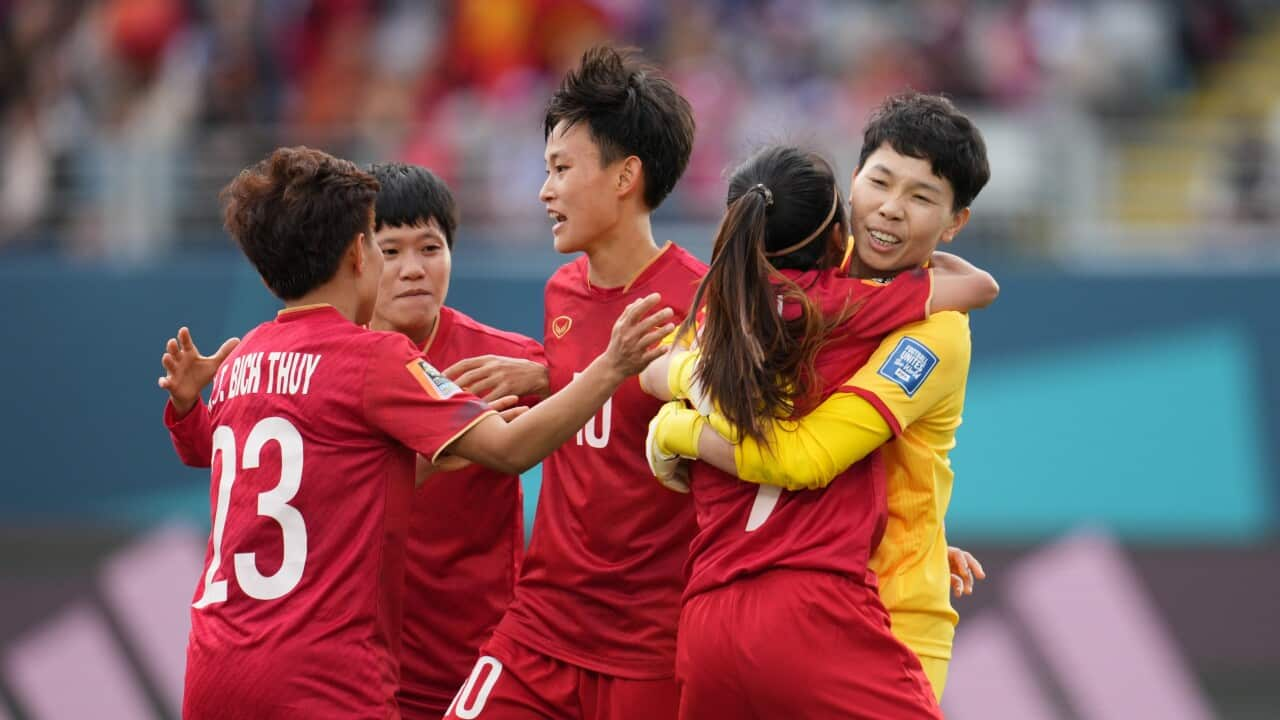Key Points
- A new book recounts the refugee journey of three mothers and their children from Vietnam.
- Turned back from Australia eight years ago, some members were jailed on their return to Vietnam.
- After months in Indonesian detention, they have finally found a permanent home in Canada.
In 2017, three mothers and 12 children escaped Vietnam for the second time, having been returned to the country by Australian immigration officials two years earlier.
They were among a cohort of Vietnamese nationals rejected by the Australian government after arriving by boat.
Their second attempt ended when the small boat they were on capsized off Indonesia, where they remained for five years, which included a period of incarceration inside an immigration detention centre.
Finally, in 2022, the 20-strong group found refuge in Canada.
Their arduous journey is the focus of a book by Australian author Shira Sebban, 'Vietnam’s Modern-Day Boat People: Bridging Borders for Freedom’.
'Hopes crushed'
The families first fled Vietnam on a small, ill-equipped boat bound for the open sea after they claimed they had been discriminated against due to their Catholic faith, and their land seized by the government.
When the families first sought asylum in Australia, their hopes were 'crushed' by the then government, Ms Sebban said.
The controversial 'enhanced screening' process led to the arbitrary decision that none of the 46 individuals on their boat deserved protection, she said.
After enduring a harrowing month at sea, Australian authorities, relying on assurances from Vietnam, forcibly repatriated them. Shockingly, the trip organisers faced severe consequences upon their return, Ms Sebban said.
In the aftermath, Ho Trung Loi found himself promptly arrested and handed a two-year jail sentence.
Simultaneously, his wife and one of the mothers, Tran Thi Thanh Loan, was sentenced to three years behind bars.
A last-minute reprieve spared her from imprisonment, enabling her to care for the couple's four children, aged four to 16, until her husband's release.
This tragic saga underscored the harsh realities faced by asylum seekers and the profound impact of governmental decisions on the lives of vulnerable families, Ms Sebban said.

From L: daughters, Ho Thanh Nha My, Ho Thanh Nha Tran, and Ho Thanh Thao Nhi, mother, Tran Thi Thanh Loan, and son, Ho Van Loc. Credit: Tran Thi Thanh Loan
A registered migration agent and writer in Sydney, Ms Sebban said she dedicated her efforts to charitable law firm, Human Rights For All, championing the release of refugees from long-term immigration detention.
She said she had initially aimed to raise funds to prevent Ms Loan's children from being sent to an orphanage, as the extended family could not afford to care for them.
Convincing Ms Loan to allow fundraising, Ms Sebban eventually broadened her efforts to support five families in similar straits via three crowd-funding initiatives.
Determined to 'escape again'
Ms Loan said her decision to escape again stemmed from the imminent threat of arrest upon her husband's release as well as harassment.
"Most terrible was what my children faced at school in Vietnam. Every Monday, during assembly, the school and police teamed together to call out my children’s names, labelling us traitors who illegally left Vietnam by boat," she said.
"Police in civilian clothes would come to my street fruit stall and scare customers away."
However, this second attempt to reach Australia was thwarted when their boat drifted into Indonesian waters, where it hit reefs and started to sink.
Their Indonesian rescue ultimately helped them avoid what would only have been another forced return by Australian authorities.
In Ms Sebban’s book, she vividly described visiting the Indonesian detention centre, where she, along with refugee advocate, Grace Bui, saw first-hand the ‘shocking conditions’ faced by the families.
“It was like a jail, with the women and children in one padlocked cell with bars across the entrance, the men and older boys in another cell opposite, and the real criminals in a cell at the end of the corridor,” Ms Sebban said.
“We had to wait for the guard to unlock the padlock to allow the men and older boys to join us in the female quarters.
"While the accommodation was modern and clean, there were no windows or natural light, and they were forced to sleep on mattresses on the floor, drying their laundry on lines strung up above them.”

The families spent 10 months in Indonesian detention. Credit: Supplied
“People were so generous – obviously the children’s plight touched their hearts," she said.
Sometimes, several advocates would band together to buy a special item, such as a computer for one of the older boys who couldn’t go to school in Indonesia.
"We also shared the cost of sending one of the little girls to school at a discounted rate,” she said.
Fresh start in Canada
Threatened with deportation to Vietnam for a second time, Ms Loan boldly stated to Indonesian authorities and the UNHCR: “If you want to send us back, you’d better shoot all of us."
We’d rather die here. The Australian government once sent us home with a promise that we wouldn’t face punishment. But we were sentenced and jailed.Tran Thi Thanh Loan
Although recognised as refugees by the UNHCR in Indonesia, the families faced the challenge of finding a third country for resettlement.
Thanks in part to fundraising by the Queensland Vietnamese community and with the help of the first Canadian senator of Vietnamese origin, Thanh Hai Ngo, the families decided to permanently settle in Canada.
Relying on Canada’s Private Sponsorship of Refugees program, the volunteer advocacy group, VOICE Canada, played a pivotal role in resettling the families, ensuring housing and other essentials. Jobs were secured, and the children returned to school.

From L, Ho Van Loc (son), Tran Thi Thanh Loan, and daughters Ho Thanh Thao Nhi and Ho Thanh Nha Tran. Nhi's picture behind the bar in the Immigration Centre Indonesia is used as the book's cover. Credit: Supplied
"This is a tale that has not received much attention in western and English-language media, which makes it even more important to share, especially as we celebrate the families’ hard-won resettlement in Canada,” she said.
She said her book gave voice to the refugees themselves, offering a serious and well-researched account to counter the often sensationalist and negative treatment of refugee stories in Australia.
Share






